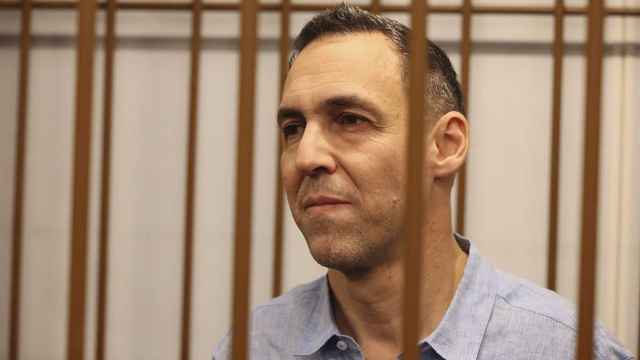NATO has not been using the transit cargo center in Ulyanovsk provided by Russia a year ago to make shipments from Afghanistan due to high transportation costs, a news report said Thursday.
The cargo station in Ulyanovsk was seen as an example of successful cooperation between Russia and NATO. Moscow hoped that a significant portion of the 100,000 containers and 60,000 vehicles that the NATO-administered International Security Assistance Force plans to relocate would pass through the Vostochny terminal in Ulyanovsk, Kommersant reported.
Many ISAF states were supposedly interested in using the transit point initially, but the authorities insisted on only using Russian carriers to operate the terminal. The carriers then raised service rates so much that none of the ISAF's member-countries considered the route attractive, unnamed staff members at NATO headquarters said.
An unnamed diplomat whose country has a military contingent in Afghanistan said that shipping a single container out of the country through the Vostochny terminal in Ulyanovsk costs 50,000 euros, whereas shipping the same container through the city of Termez in Uzbekistan would cost only 30,000 euros.
A Russian government official, whose name was not given, told Kommersant that even though the terminal is "cheaper and safer" than other routes, NATO decided not to use the Ulyanovsk route "for tactical reasons": The alliance wanted to diversify its supply network and did not want to rely exclusively on a single route.
NATO was also apprehensive about giving Russia too much leverage by relying solely on the transit point in Ulyanovsk, fearing that Russia would be able to pressure the organization in the same way it used Gazprom to pressure the EU, he said.
NATO had insisted on giving a Western logistical company control over the shipping process, but Russia refused for national security reasons.
A Message from The Moscow Times:
Dear readers,
We are facing unprecedented challenges. Russia's Prosecutor General's Office has designated The Moscow Times as an "undesirable" organization, criminalizing our work and putting our staff at risk of prosecution. This follows our earlier unjust labeling as a "foreign agent."
These actions are direct attempts to silence independent journalism in Russia. The authorities claim our work "discredits the decisions of the Russian leadership." We see things differently: we strive to provide accurate, unbiased reporting on Russia.
We, the journalists of The Moscow Times, refuse to be silenced. But to continue our work, we need your help.
Your support, no matter how small, makes a world of difference. If you can, please support us monthly starting from just $2. It's quick to set up, and every contribution makes a significant impact.
By supporting The Moscow Times, you're defending open, independent journalism in the face of repression. Thank you for standing with us.
Remind me later.





